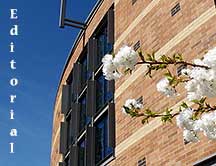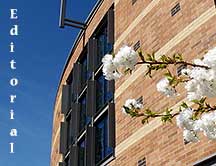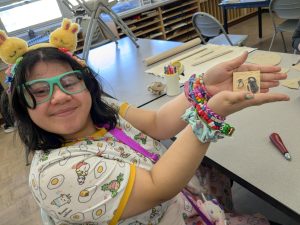Braves deserve gold for going green

August 27, 2014

The City of Seattle is steadily becoming an increasingly environmentally friendly city, with bike paths and Metro buses, a plastic bag ban and other measures to reduce waste and pollution.
Now, with the help of the Green Team, Bishop Blanchet is taking part in the important work of shrinking our environmental footprint with the new compost and recycling program.
In the past few weeks, recycling and compost bins have been placed throughout the cafeteria and in the halls, and students have been using them to dispose of food and recyclable waste.
It may seem like a small step, but even so it is a step in the right direction
According to Waste Management, Inc.’s Seattle Monthly, 35.5% of the City of Seattle’s landfilled garbage is compostable food and yard waste; 22.5% is recyclable paper; and 17.3% is glass, metal and recyclable plastic.
This means that over 75% of the garbage that is filling up Seattle’s landfills is actually waste that could have been composted or recycled. Not only is this amount of garbage damaging to the environment, it is also expensive.
The Waste Management, Inc. Seattle Monthly states that along with the hassle and air, water, and ground pollution that comes from disposing of Seattle’s 318,600 tons of garbage delivered to the Arlington landfill in Oregon, Seattle residents foot the bill of $20 million each year.
According to the King County Resource Recovery and Waste Management Department, up to 80% of waste from most schools is recyclable. When schools contribute to helping the environment by not sending waste to the landfill, they can make a big difference.
Students have been receptive to the call to help the environment in whatever way they can, and Bishop Blanchet’s encouragement of students to recycle and compost is a great step in the right direction towards each of us reducing our environmental impact.




